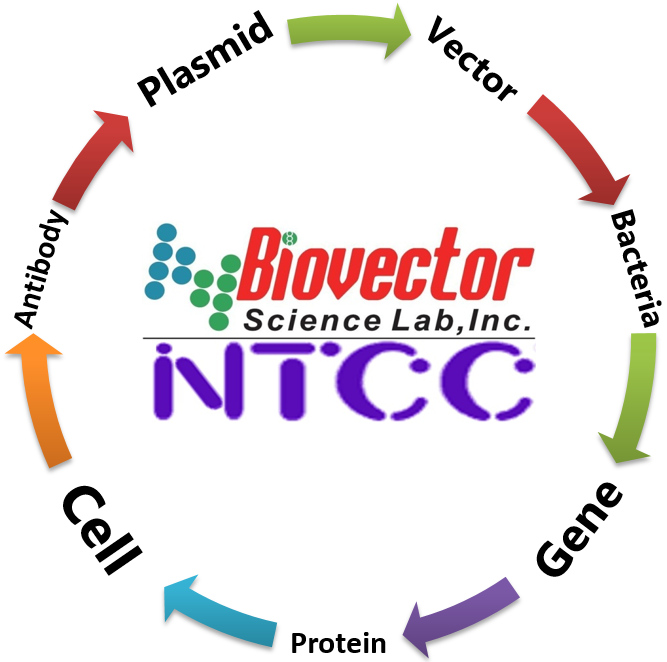BioVector's LOVO-DDP人结直肠腺癌顺铂耐药细胞株human colorectal adenocarcinoma cell line BioVector NTCC典型培养物保藏中心
- 价 格:¥299850
- 货 号:BioVector-LOVO-DDP
- 产 地:北京
- BioVector NTCC典型培养物保藏中心
- 联系人:Dr.Xu, Biovector NTCC Inc.
电话:400-800-2947 工作QQ:1843439339 (微信同号)
邮件:Biovector@163.com
手机:18901268599
地址:北京
- 已注册
BioVector's LOVO-DDP cell line refers to a drug-resistant variant of the LoVo human colorectal adenocarcinoma cell line, specifically developed to exhibit resistance to cisplatin (DDP).
Here's a breakdown:
1. LoVo Cell Line:
Origin: LoVo cells were established in 1971 from a metastatic tumor nodule (in the left supraclavicular region) of a 56-year-old male patient with a histologically confirmed diagnosis of adenocarcinoma of the colon (a type of colorectal cancer).
Characteristics:
Adherent, epithelial-like cells: They grow attached to surfaces in culture.
Hyperdiploid karyotype: They have an abnormal number of chromosomes.
Oncogene expression: Positive for c-myc, K-ras, H-ras, N-ras, Myb, sis, and fos oncogenes.
CEA production: They are known to produce carcinoembryonic antigen (CEA), a tumor marker.
Mutations: Characterized by mutations in genes like
APC(adenomatous polyposis coli),KRAS(Kirsten rat sarcoma viral oncogene homolog), andTP53(tumor protein p53), which are common in colorectal cancer.
Uses: The parental LoVo cell line is widely used in cancer research to study colorectal cancer progression, metastasis, signaling pathways, and for screening anti-cancer compounds.
2. -DDP:
This suffix indicates that the cell line has been selected for resistance to cisplatin (DDP). Cisplatin (cis-diamminedichloroplatinum(II)) is a platinum-based chemotherapy drug widely used to treat various cancers, including colorectal cancer.
Development of Resistance: Drug-resistant cell lines like LOVO-DDP are typically generated by exposing the parental cell line (LoVo) to gradually increasing concentrations of the drug (cisplatin) over an extended period. The surviving cells acquire mechanisms to resist the drug's cytotoxic effects.
 Purpose and Applications of LOVO-DDP Cell Line:
Purpose and Applications of LOVO-DDP Cell Line:
The LOVO-DDP cell line is a critical tool for researchers investigating:
Mechanisms of Cisplatin Resistance: This is the primary reason for developing such a cell line. Researchers use it to understand how cancer cells develop resistance to cisplatin. This involves studying:
Changes in gene expression (e.g., overexpression of efflux pumps like ABC transporters that pump the drug out of the cell).
Alterations in drug metabolism or detoxification pathways (e.g., increased levels of glutathione).
Changes in DNA repair mechanisms.
Activation of survival pathways or inhibition of apoptosis.
Epithelial-Mesenchymal Transition (EMT), which can contribute to drug resistance and increased invasiveness.
Overcoming Drug Resistance: LOVO-DDP is used to test novel therapeutic strategies aimed at re-sensitizing resistant cancer cells to cisplatin or other chemotherapy drugs. This could involve:
Identifying combination therapies (e.g., combining cisplatin with targeted agents).
Testing new compounds that inhibit resistance mechanisms.
Drug Discovery and Screening: It serves as a model to screen for new anti-cancer drugs that are effective against cisplatin-resistant colorectal cancer.
Biomarker Identification: Researchers might use LOVO-DDP to identify biomarkers that predict cisplatin resistance in patients.
BioVector NTCC典型培养物保藏中心
- 公告/新闻
.JPG)




